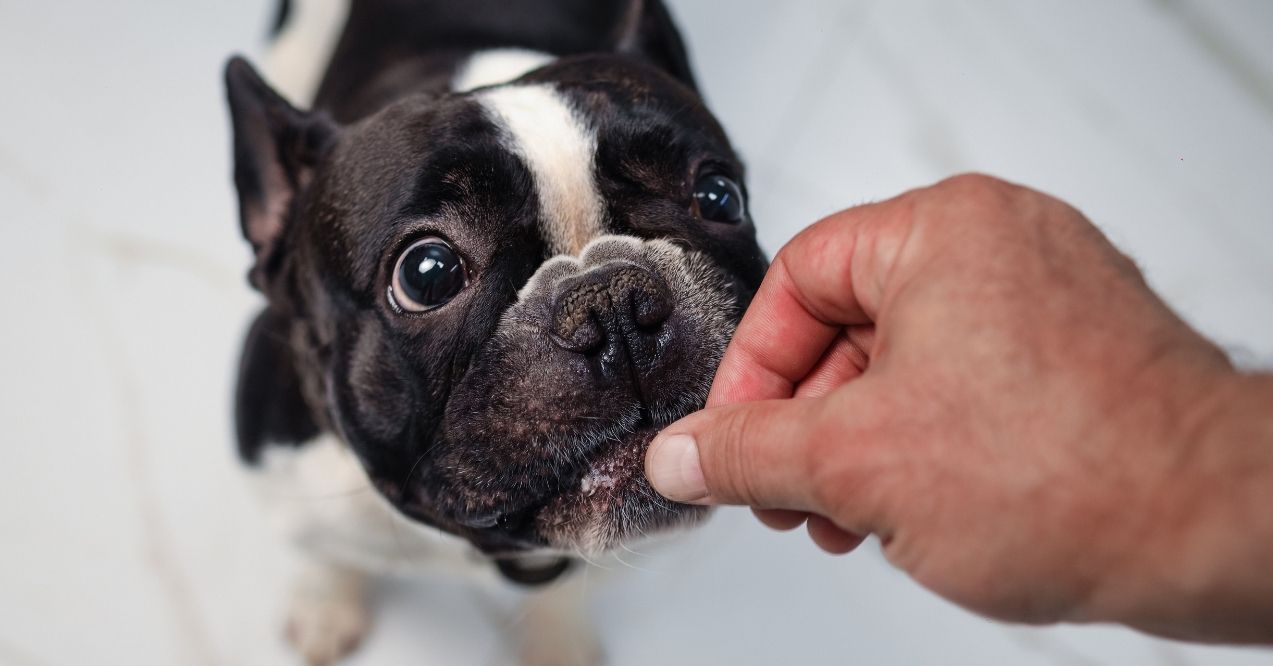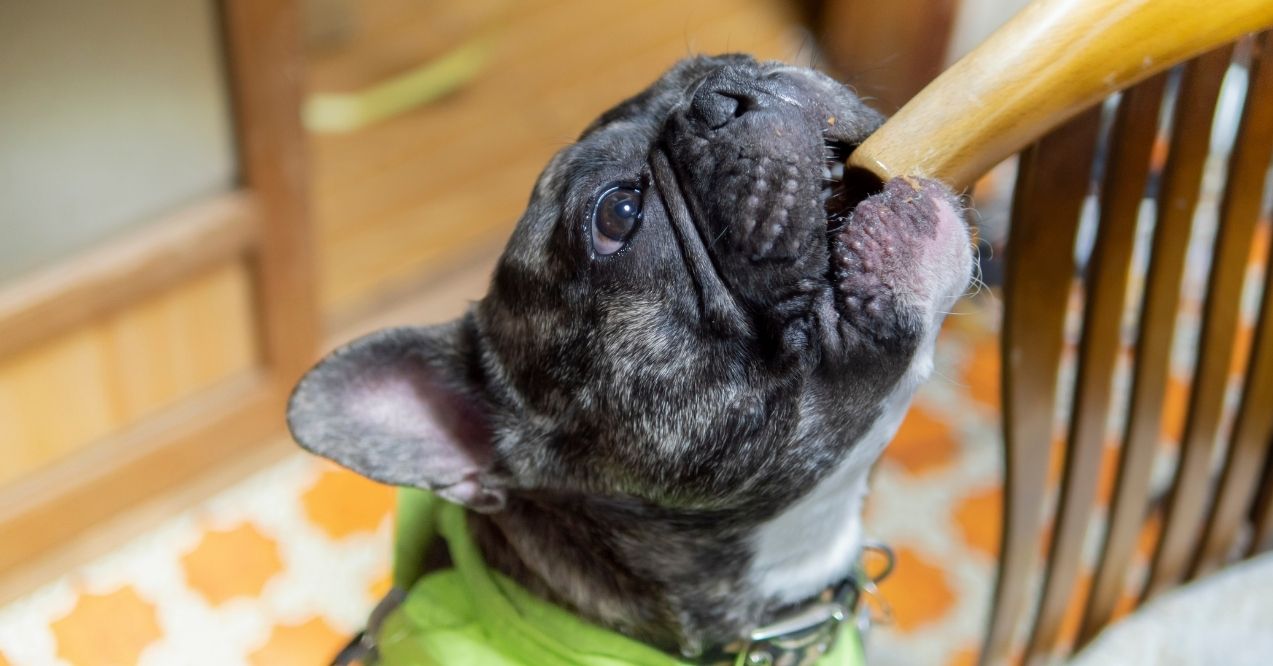French Bulldog Behavior Problems & What to Do
Those adorable bat ears and squishy faces make French Bulldogs irresistible companions. While they’re known for their playful spirit and loving nature, Frenchies can develop certain behavior problems without proper guidance. Their stubbornness, strong attachment to owners, and high sensitivity might lead to issues like excessive barking, aggression, or destructive chewing.
French Bulldog behavior problems often stem from their unique personality traits rather than deliberate disobedience. This article offers practical, breed-specific solutions to manage and prevent these challenges, helping you and your Frenchie live harmoniously.
Understanding French Bulldog Behavior Problems
Before tackling specific issues, it’s helpful to know what drives your Frenchie’s behavior. Their unique blend of stubbornness, sensitivity, and strong bonds with owners creates distinctive behavioral patterns that require targeted approaches.
Are French Bulldogs Naturally Stubborn?
The short answer? Yes, they might be.
French Bulldogs have an independent streak that sometimes gets labeled as stubbornness. This trait stems from their history as companion dogs that could think for themselves. When training seems challenging, it’s not because your Frenchie lacks intelligence—they’re simply weighing whether following commands is worth their effort. Positive reinforcement works wonders, turning that stubborn streak into eager participation.
Can French Bulldogs Be Aggressive?
French Bulldogs aren’t naturally aggressive dogs. However, like any breed, they can display bulldog aggressive behavior under certain circumstances. Fear, frustration, pain, or lack of socialization might trigger unwanted reactions. The difference between playful roughhousing and true aggression lies in body language: stiff posture, intense staring, raised hackles, or growling signal potential problems. Health issues, including French Bulldog allergies, might cause discomfort that leads to irritability.
Aggression Toward Other Dogs
Some Frenchies may show aggression toward other dogs due to territorial instincts or poor socialization. French Bulldog aggressive to other dogs behavior often manifests as lunging or barking during walks. Successful management involves controlled introductions in neutral territories, keeping initial meetings brief and positive. Gradually increase exposure while rewarding calm behavior. For leash reactivity, practice “Look at me” commands with treats to redirect attention away from triggers.
Common French Bulldog Behavior Issues & Solutions

Most Frenchie owners face certain behavioral challenges. The good news? With consistent training and environmental adjustments, these issues may be significantly improved or even eliminated.
Excessive Barking & Attention-Seeking Behavior
While not typically vocal dogs, some Frenchies develop barking habits to get attention or out of boredom. Address French Bulldog behavior issues like excessive barking by first identifying triggers. Is it separation anxiety? Boredom? Outside stimuli? Once identified, teach the “quiet” command by saying it when barking starts, waiting for a pause, then rewarding silence. Consistency is key. For attention-seeking barking, only give attention when your Frenchie is calm and quiet.
Separation Anxiety & Clingy Behavior
French Bulldogs form intense bonds with their humans, making them prone to separation anxiety. Signs include destructive behavior, excessive vocalization, or indoor accidents when left alone. Build tolerance gradually by practicing brief departures and returns without making a fuss. Start with minutes and slowly extend. Crate training provides a safe space when properly introduced. Enrichment toys filled with frozen treats can keep your pup occupied while you’re away.
Resource Guarding & Food Aggression
Aggression in French Bulldogs sometimes appears around valued resources like food, toys, or sleeping spots. To address food guarding, start by standing near your Frenchie during meals without reaching for their bowl. Gradually progress to adding tasty treats to their bowl while they eat, creating positive associations with your presence. For multi-dog homes, feed pets separately to prevent competition and stress that could trigger guarding behaviors.
Destructive Chewing & Furniture Damage
Chewing satisfies natural urges but becomes problematic when directed at furniture or belongings. Frenchies may chew destructively due to teething, anxiety, or simple boredom. Provide appropriate alternatives like rubber toys or dental chews. When you catch your Frenchie chewing furniture, firmly say “No,” then immediately offer an acceptable alternative. Praise them for chewing the right item. Discomfort from unhealthy dog nails might also trigger stress behaviors like excessive chewing.
How to Prevent French Bulldog Behavior Problems

Prevention is always easier than correction. Setting your Frenchie up for success from the beginning saves both of you frustration and builds a stronger relationship based on mutual trust and clear communication.
Early Socialization & Obedience Training
The foundation for a well-behaved Frenchie starts in puppyhood. Between 8-16 weeks, expose your pup to various people, friendly dogs, environments, and sounds. This critical period shapes how they’ll respond to new situations throughout life. Join puppy classes for structured socialization. Teach basic commands like sit, stay, and come using positive reinforcement. Keep sessions short (5-10 minutes) but frequent to accommodate their attention span.
Creating a Stable Home Routine
French Bulldogs thrive on predictability. Establish consistent schedules for meals, walks, play, and sleep to reduce anxiety and behavior problems. Feed at the same times daily. Schedule 2-3 short walks at regular intervals. Set aside dedicated play sessions to burn energy. This stability helps your Frenchie know what to expect, reducing stress that could trigger unwanted behaviors.
Managing Aggression Before It Starts
Preventing Frenchie aggressive tendencies requires recognizing early warning signs. Watch for stiffening body posture, intense staring, or low growling. When you notice these signals, calmly redirect your dog’s attention before the situation escalates. Avoid punishment, which can increase fear and aggression. Instead, reward calm behavior around potential triggers. Consider working with a professional trainer if you notice concerning patterns developing.
Conclusion
French Bulldog behavior problems often stem from their unique blend of stubbornness, sensitivity, and strong attachment to owners. With patience and consistent training, most issues can be managed effectively. Focus on positive reinforcement rather than punishment to preserve your Frenchie’s confidence and trust. Early socialization, clear boundaries, and understanding their unique needs go a long way toward preventing problems before they start.
Yes, Frenchies can display jealous behaviors when they feel their special status is threatened by new pets, people, or even objects receiving attention from their owners.
Provide appropriate chew toys, use bitter apple spray on furniture, ensure adequate exercise, and redirect unwanted chewing to acceptable items with praise.
Yes, through gradual desensitization, hand-feeding, and creating positive associations with your presence during mealtimes.
Most Frenchies get along well with other pets when properly socialized, though some may show territorial behavior that requires management and training.
Advertisement. This site offers health, wellness, fitness and nutritional information and is designed for educational purposes only. You should not rely on this information as a substitute for, nor does it replace, professional medical advice, diagnosis, or treatment. If you have any concerns or questions about your health, you should always consult with a physician or other health-care professional. Do not disregard, avoid or delay obtaining medical or health related advice from your health-care professional because of something you may have read on this site. The use of any information provided on this site is solely at your own risk.



















